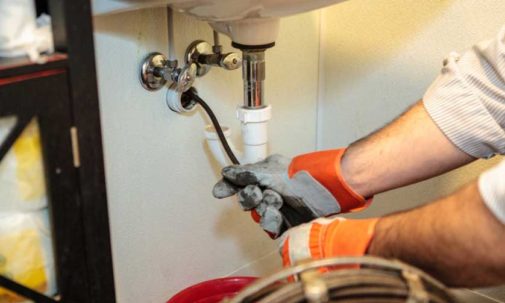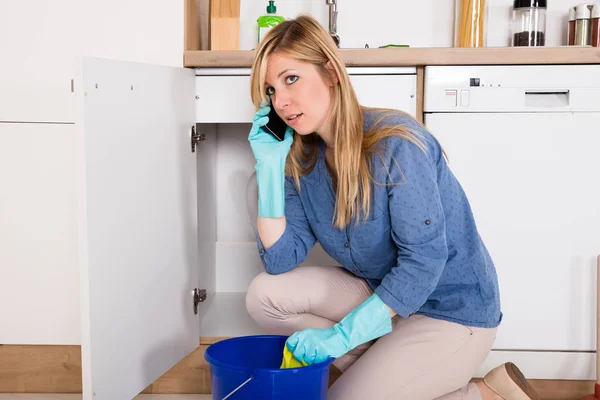Quick Solutions for Plumbing Emergencies: Essential Steps to Take Until Help Arrives
Quick Solutions for Plumbing Emergencies: Essential Steps to Take Until Help Arrives
Blog Article
Each person may have their personal opinion when it comes to What to Do While Waiting for an Emergency Plumber.

Plumbing emergencies can strike at any time, creating stress and possible damages to your home. Whether it's a ruptured pipeline, a stopped up drain, or a leaking faucet, knowing exactly how to manage the scenario up until a specialist plumbing technician shows up can conserve you from additional complications. This short article gives necessary emergency pipes pointers to help you alleviate damage and restore control during a plumbing dilemma.
Shut off the Water Supply
The primary step in any kind of plumbing emergency situation is to shut down the supply of water. For localized concerns, such as a leaking faucet or toilet, switch off the shutoff near the fixture. In the case of a major leak or burst pipe, situate your home's main water shut-off shutoff and transform it off quickly. Recognizing the place of these valves ahead of time can save beneficial time throughout an emergency.
Turn off Your Water Heater
In specific emergencies, such as a burst pipe, it's wise to shut down your hot water heater. This stops overheating or damage to the unit when water quits streaming. Switch off the power supply to the hot water heater (electric or gas) and allow it cool off to avoid possible hazards.
Briefly Stop a Ruptured Pipe
A burst pipeline can lead to substantial water damage in mins. To mitigate the problem:
Call an expert plumbing promptly to address the issue permanently.
Have an Emergency Pipes Package
Prepare a basic plumbing emergency set to take care of small issues efficiently. Your set must consist of:
Having these devices accessible can make a significant distinction in your ability to manage emergencies.
Unclog Drains Pipes Securely.
A clogged up drainpipe can be a frustrating and unpleasant issue. Here's just how to tackle it:.
If these approaches don't work, stay clear of making use of extreme force, as it might aggravate the obstruction.
Manage Overflowing Toilets.
An overflowing commode can trigger instant chaos. Below's what you must do:.
Address Little Leaks with Momentary Solutions.
Small leaks can promptly become considerable troubles if left unattended. Utilize these short-lived fixes up until specialist help arrives:.
While these solutions aren't permanent, they can help lessen water loss and damages.
Take Care Of Frozen Pipes Thoroughly.
In chillier environments, icy pipes are a common emergency. If you presume an icy pipeline:.
Know When to Call a Specialist.
While quick fixes can aid momentarily, particular pipes concerns call for prompt specialist interest. Call a plumbing professional if:.
Promptly contacting a specialist makes sure the problem is dealt with correctly and prevents more issues.
Avoid Further Damage.
Taking fast activity to reduce damage can conserve you money and time over time. Here's just how:.
Conclusion.
Pipes emergencies can be overwhelming, yet with the best knowledge and devices, you can manage the scenario successfully until aid shows up. By turning off the water supply, attending to small leakages, and using short-lived repairs, you can minimize damages and keep your home safe. Bear in mind, these ideas are temporary remedies; always get in touch with an accredited plumber to deal with the origin of the issue. Prep work and quick reasoning are your best allies in any type of plumbing emergency.
Expert Tips for Emergency Plumbing Repairs
Plumbing emergencies can be incredibly stressful and inconvenient. Whether it’s a burst pipe, a clogged drain, or a leaky faucet, these common plumbing emergencies need immediate attention to prevent further damage to your home. But before you panic, it’s important to understand the basics of plumbing repairs and the steps you can take to address these emergencies. In this article, we will share some expert tips to help you navigate through these situations and minimize potential water damage.
Identifying Common Plumbing Emergencies
Leaky pipes and faucets Clogged drains and toilets Burst pipes Low water pressure Water heater problems Essential Tools for Plumbing Repairs
Plunger: Useful for unclogging toilets and drains Adjustable wrench: Needed for tightening or loosening nuts and bolts Pipe wrench: Ideal for gripping and turning pipes Tape measure: Necessary for accurate pipe measurements Plumber’s tape: Helps create watertight seals Understanding Emergency Plumbing Services
Emergency plumbing services are designed to provide immediate assistance for unexpected plumbing issues that can cause significant damage to your home, business, or health. These services are typically available 24/7 and are staffed by experienced plumbers who can quickly diagnose and repair a wide range of plumbing problems.
When a plumbing emergency strikes, time is of the essence. Whether it’s a burst pipe flooding your basement or a gas leak posing a serious risk, emergency plumbing services ensure that help is just a phone call away. These professionals are equipped with the tools and expertise to handle any situation, minimizing damage and restoring your plumbing system to proper working order.
What Constitutes a Plumbing Emergency?
Burst pipes or water supply lines: These can cause extensive water damage and need immediate repair to prevent flooding. Gas leaks or suspected gas leaks: Gas leaks are extremely dangerous and require prompt attention to avoid potential explosions or health hazards. Sewer backups or overflows: These can lead to unsanitary conditions and significant property damage. Clogged drains or toilets causing water to overflow: Overflowing water can damage floors, walls, and other structures. Leaks or water damage causing structural damage: Persistent leaks can weaken the structural integrity of your home or business. No hot water or heating: A lack of hot water can be more than an inconvenience, especially in colder months. Common Causes of Plumbing Emergencies
Aging or corroded pipes: Over time, pipes can deteriorate, leading to leaks or bursts. Improperly installed or maintained plumbing fixtures: Faulty installations or lack of maintenance can result in unexpected failures. Tree roots or other debris infiltrating your sewer line: Roots can grow into pipes, causing blockages and backups. Frozen pipes or water supply lines: In colder climates, pipes can freeze and burst, leading to significant water damage. High water pressure or sudden changes in water pressure: Excessive pressure can strain pipes and fixtures, causing them to fail. Natural disasters such as floods or earthquakes: These events can disrupt your plumbing system and cause severe damage. Steps to Minimize Water Damage
Locate the water shut-off valve: Knowing where the valve is can help you quickly cut off the water supply to the affected area. Turn off the water heater: If there’s a risk of water coming into contact with the heating element, make sure to turn off the water heater to avoid potential accidents. Open faucets and drain pipes: By opening faucets and drain pipes, you can relieve pressure and empty any standing water. Collect and contain water: Use towels, buckets, or bins to collect water and prevent it from spreading to other areas of your home. https://leecountyplumbingandwellservice.com/expert-tips-for-emergency-plumbing-repairs/

As an enthusiastic reader about Plumbing Emergencies: Tips on What To Do Before, I thought sharing that excerpt was essential. Sharing is caring. Helping people is fun. I treasure your readership.
Book Report this page